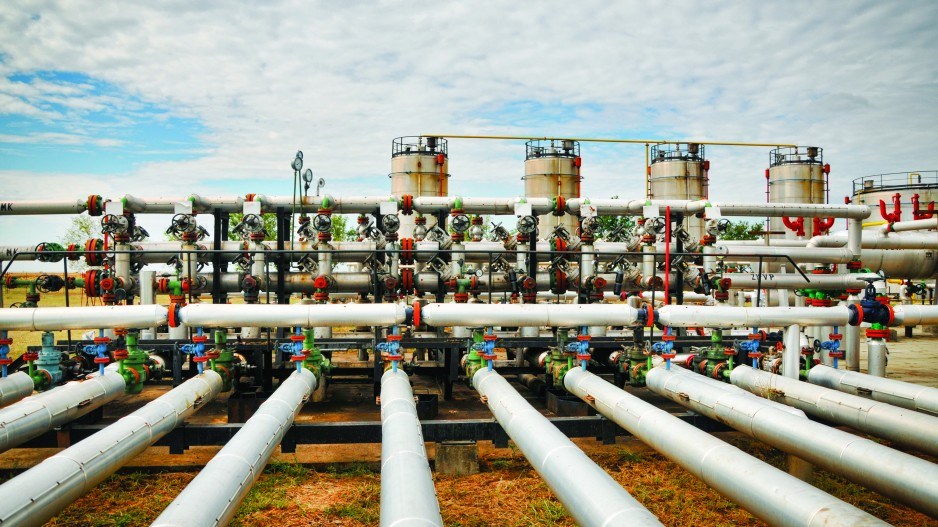Fix the methane problem and natural gas could become a crucial bridge from the fossil fuel age to a decarbonized age powered by clean, renewable energy.
That’s the concession Globe 2016 attendees heard from Diane Regas, executive director of the Environmental Defense Fund, during the conference’s Accelerating the Energy Transition discussion.
Regas said moving to a low-carbon economy is “one of the most important transitions we need to make. Most people are really surprised about the role that natural gas can play.”
Canada and the U.S. are uniquely poised to benefit economically from an innovation advantage and abundance of unconventional oil and gas, said Prof. Michael Porter of the Institute for Strategy and Competitiveness at Harvard Business School.
Porter pronounced coal as an energy source to be a dead-end industry, oil as an industry that will continue to have some role in decades to come and renewable energy as inevitability.
“But it’s going to take time,” he said.
Dealing with renewable energy’s intermittency and storage challenges will take time.
In the interim, natural gas, used domestically, and liquefied natural gas (LNG), used as an export, could have environmental and economic benefits for both Canada and the U.S.
But Porter said the oil and gas industry will need to face up to the environmental concerns around unconventional oil and gas, including induced seismic activity from fracking, water use and contamination and fugitive methane gas emissions.
He added, however, that those problems can be “substantially mitigated” through better regulations and innovation.
In the climate change debate, most of the focus is on carbon dioxide emissions. But Regas said more focus needs to be applied to methane – the main compound in natural gas. It’s 85 times more potent than CO2 as a greenhouse gas (GHG), she said, because of its heat insulating properties. Methane emissions represent 25% of the global GHG problem, Regas said, and are equal to 70% of the planet’s GHGs from coal power plants.
“It’s a big issue that has not got enough attention. It’s also a huge opportunity. If you can reduce methane emissions by 45% … that would be equivalent to closing about a third of the coal plants.”
Regas noted a recent analysis that estimates the gap between Canada’s commitments as per the Paris Agreement and its current climate action plans amounts to 45 million metric tonnes of GHGs per year.
“Just reducing the emissions of methane from the natural gas system can take care of about 25% of the gap,” Regas said.
Porter’s and Regas’ support of natural gas in energy transition might be music to Premier Christy Clark’s ears, but what does the transition mean for Alberta?
Because airplanes and cars will need oil for the foreseeable future, Porter said there will still be a role for it and Alberta’s oilsands. He painted a picture of Alberta’s oilsands reaching a steady state, with little expansion.
Without mentioning the Northern Gateway pipeline, Al Monaco, CEO for Enbridge Inc. (TSX:ENB), skated at least close enough to the issue during the panel discussion to hint that the company might be refocusing its priorities.
He said a company like his must have “a lot of projects in [its] hopper and then select the one or two to go ahead each year.”
Monaco recently confirmed the likelihood of meeting the construction start deadline this year on the pipeline project is “remote” and said the company is in “evaluation mode” on the project.
Enbridge has traditionally been strictly an oil transportation company, Monaco told the Globe 2016 panel.
“Today, 30% of our earnings and assets are driven by natural gas and renewables.” Monaco added that Enbridge has invested $5 billion in renewables in the last decade.
Not all panellists agreed with promoting natural gas as a way of transitioning to the renewable energy age.
Tzeporah Berman, adjunct professor of environmental studies at York University and former co-director of Greenpeace’s international climate and energy program, said renewable energy adoption might occur quicker than many people think.
“I think that in some regions we can leap straight to a significant renewable grid.”




